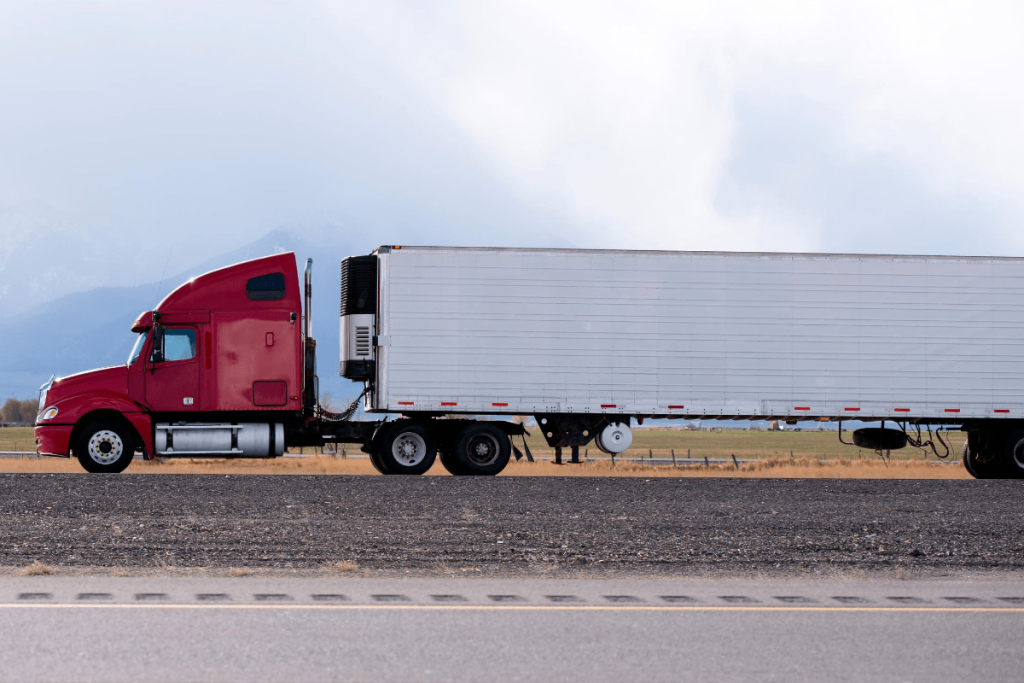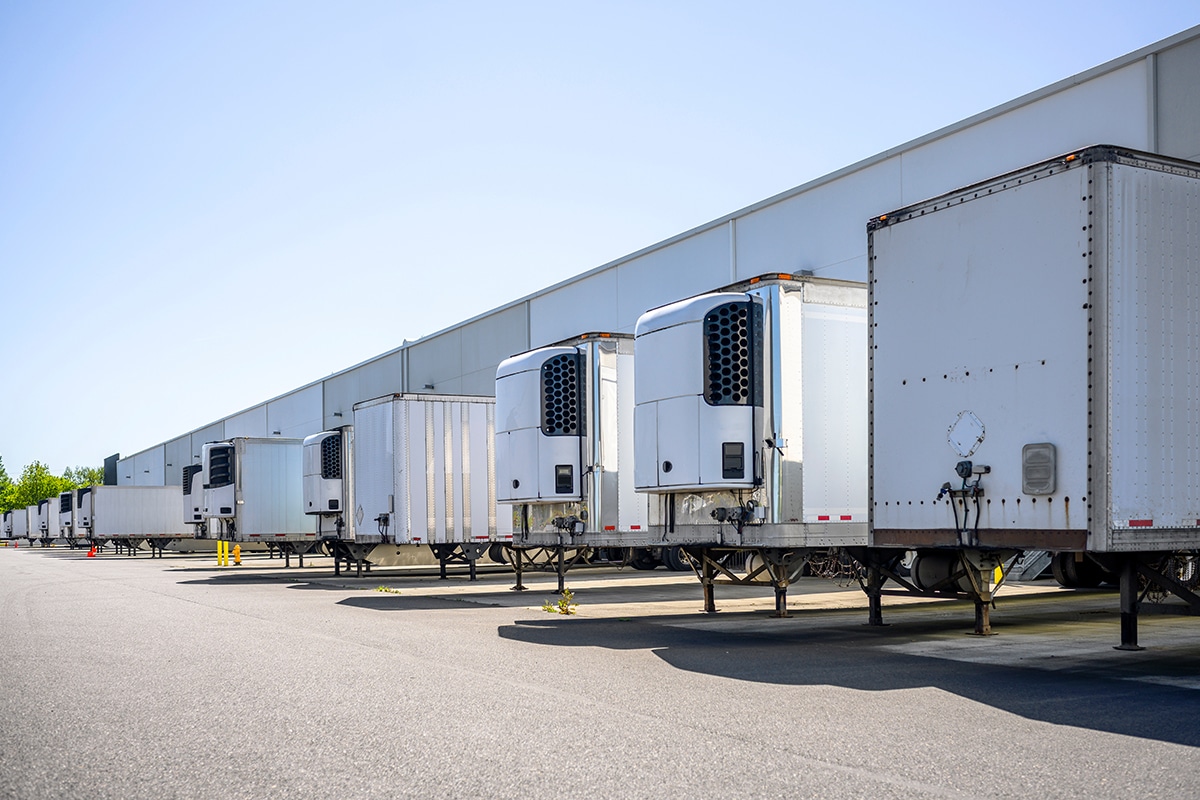Thermo King Transport Refrigeration: Top Quality Cooling for Freight
Wiki Article
Top Developments in Transport Refrigeration: Enhancing Efficiency and Safety
The landscape of transport refrigeration is undergoing substantial makeover, driven by innovations focused on improving both effectiveness and safety. Trick developments such as wise temperature level tracking systems, environment-friendly cooling agents, and automated route optimization are critical in attending to the sector's difficulties. These modern technologies not only guarantee the integrity of temperature-sensitive products but additionally add to sustainability initiatives. As these innovations proceed to progress, it is important to explore their ramifications on operational practices and governing compliance, motivating a closer examination of how they reshape the future of transport refrigeration.Smart Temperature Checking Systems
In the world of transportation refrigeration, smart temperature monitoring systems have become a crucial innovation for guaranteeing the stability of temperature-sensitive products. These sophisticated systems leverage Web of Points (IoT) modern technology to provide real-time information on temperature level variations, making it possible for drivers to maintain optimum problems throughout the supply chain. By continuously tracking the temperature level of chilled containers and lorries, companies can quickly determine discrepancies that might endanger item top quality.
Additionally, wise surveillance systems frequently include automated alerts and alerts, permitting stakeholders to respond immediately to any type of possible issues. This positive strategy not just decreases the threat of wasting yet likewise improves conformity with governing requirements governing food safety and security and pharmaceutical transportation.
The assimilation of data analytics within these systems also assists in predictive maintenance, assisting drivers to anticipate prospective equipment failings prior to they happen. This ability reduces downtime and enhances operational performance, eventually causing set you back financial savings.
Eco-Friendly Refrigerants
Smart temperature surveillance systems play a vital role in keeping item top quality, yet the performance of transportation refrigeration also pivots on the selection of refrigerants utilized. As environmental concerns increase, the change towards environmentally friendly cooling agents has actually come to be essential. Conventional refrigerants, such as hydrofluorocarbons (HFCs), are notorious for their high Global Warming Potential (GWP), adding significantly to climate adjustment. In contrast, emerging options like hydrocarbon-based cooling agents and hydrofluoroolefins (HFOs) present lower GWP choices, supplying both efficiency and sustainability.
These environment-friendly refrigerants not just lessen ecological influence yet also align with global policies focused on eliminating dangerous materials. Their fostering can lead to enhanced energy efficiency, ultimately decreasing operating expenses for transport refrigeration systems. The use of natural refrigerants, such as ammonia and carbon dioxide, has gained traction due to their excellent thermodynamic homes and reduced ecological impact.
Purchasing environment-friendly refrigerants is not simply a regulatory compliance procedure; it represents a critical decision that boosts brand credibility and promotes customer commitment. thermo king truck refrigeration. By focusing on lasting techniques, companies can add to a greener future while ensuring the integrity of carried goods
Advanced Insulation Materials
Making use of advanced insulation materials is vital for enhancing transportation refrigeration systems, as they dramatically enhance power performance and keep regular temperature level control. Typical insulation methods frequently drop short in preventing thermal transfer, bring about enhanced power consumption and changing temperature levels within refrigerated areas.Arising materials such as vacuum cleaner shielded panels (VIPs) and aerogels offer exceptional thermal resistance, enabling thinner profiles without click resources jeopardizing efficiency. VIPs, for example, make use of a vacuum layer to lessen convective and conductive heat transfer, making them suitable for space-constrained applications. Aerogels, known for their permeable and lightweight structure, supply remarkable insulation while dramatically reducing general system weight.
Additionally, including phase change materials (PCMs) into insulation systems can better stabilize temperatures throughout transportation. These products absorb and launch thermal energy, efficiently buffering versus external temperature variants.
The integration of these advanced insulation products not only minimizes the functional prices related to energy consumption but likewise prolongs the service life of temperature-sensitive items. As the transport refrigeration industry continues to develop, the adoption of innovative insulation technologies will be critical in improving both effectiveness and security in cooled transportation.
Automated Course Optimization
The performance of transportation refrigeration systems is considerably improved via automated path optimization, which leverages innovative formulas and real-time information to figure out the most efficient paths for shipment. By analyzing various aspects such as website traffic patterns, weather condition conditions, and delivery home windows, these systems can significantly lower traveling time and fuel intake.Automated path optimization reduces human error and subjective decision-making, which can cause inadequacies. This modern technology allows fleet managers to designate resources better, making sure that refrigerated items preserve their required temperature level throughout the journey. By maximizing routes, firms can likewise boost client complete satisfaction via timely distributions.
Furthermore, automated systems can adjust to unexpected circumstances, such as road closures or abrupt web traffic spikes, allowing for vibrant rerouting. This versatility not just safeguards the honesty of temperature-sensitive products yet likewise adds to total operational performance.
Carrying out automated route optimization can lead to considerable cost financial savings while decreasing the carbon footprint connected with transport. As businesses progressively prioritize sustainability, this innovation sticks out as a critical component in contemporary transport refrigeration, lining up functional goals with environmental responsibility. Inevitably, automated route optimization stands for a significant innovation in the mission for efficiency and security in transportation refrigeration.

Real-Time Data Analytics
Automated course optimization dramatically advantages from the integration of real-time information analytics, which supplies vital insights right into the performance of transportation refrigeration systems. By using real-time data, transport drivers can keep track of temperature level changes and equipment efficiency, guaranteeing that subject to spoiling products are kept within needed parameters throughout transportation. This proactive technique not only improves the quality of the delivered products however also alleviates the risk of wasting and loss.
Along with improving effectiveness, real-time analytics improves safety and security by making sure compliance with regulatory criteria for temperature level control. This not only shields public health and wellness but additionally strengthens a company's reputation - thermo king truck refrigeration units. As the transport refrigeration market progresses, the integration of real-time data analytics emerges as a cornerstone for driving advancement, sustainability, and operational quality
Final Thought
To conclude, the advancements in transport refrigeration significantly improve both efficiency and security within the industry. Smart temperature surveillance systems and real-time data analytics provide critical oversight, while environment-friendly refrigerants and advanced insulation products contribute to sustainability and energy performance. Automated course optimization look at this now algorithms not only minimize traveling time but likewise lessen ecological impact. Jointly, these technologies represent an essential evolution in transportation refrigeration, making certain compliance with regulative criteria and promoting a greener future.The landscape of transport refrigeration is going through considerable improvement, driven by advancements intended at boosting both performance and safety and security.Smart temperature monitoring systems play an important function in preserving product top why not try this out quality, yet the performance of transportation refrigeration additionally pivots on the choice of refrigerants used. Their adoption can lead to enhanced energy efficiency, ultimately reducing operating costs for transport refrigeration systems. Ultimately, automated course optimization stands for a considerable improvement in the mission for effectiveness and security in transportation refrigeration.
In verdict, the developments in transport refrigeration considerably improve both efficiency and safety and security within the market.
Report this wiki page